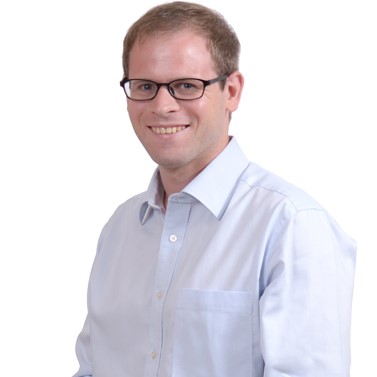Nation’s 100,000 naturalized citizen tells of ‘becoming’ Korean
Professor Kumar from India tells The Korea Herald about living in Korea for 31 years and obtaining Korean citizenship. ― Ed.
Thirty one years ago, a young Indian man, Roy Alok Kumar, arrived in South Korea to study on a Korean government scholarship. Last week, he walked out of the Justice Ministry complex near Seoul a Korean national ― the country’s 100,000th naturalized citizen.
After spending a majority of his life as an expat here, acquiring citizenship and “becoming” Korean made practical sense for the 51-year-old professor of Indian studies.
“The main reason is the day-to-day inconveniences one faces being a foreigner, and I have lived here for the last 31 years now,” said Kumar, who has two children with his Korean wife.
Whether it was difficulty in getting state-sponsorship for college research or having to renew his contract at his university every year, not being Korean was a chore at times, the professor had said in earlier media interviews.
Professor Kumar from India tells The Korea Herald about living in Korea for 31 years and obtaining Korean citizenship. ― Ed.
Thirty one years ago, a young Indian man, Roy Alok Kumar, arrived in South Korea to study on a Korean government scholarship. Last week, he walked out of the Justice Ministry complex near Seoul a Korean national ― the country’s 100,000th naturalized citizen.
After spending a majority of his life as an expat here, acquiring citizenship and “becoming” Korean made practical sense for the 51-year-old professor of Indian studies.
“The main reason is the day-to-day inconveniences one faces being a foreigner, and I have lived here for the last 31 years now,” said Kumar, who has two children with his Korean wife.
Whether it was difficulty in getting state-sponsorship for college research or having to renew his contract at his university every year, not being Korean was a chore at times, the professor had said in earlier media interviews.

Kumar, who has taught at Pusan University of Foreign Studies since 1989, said it was because it was such a big decision that he left applying for citizenship for so long.
“Having a nationality change is not changing a house or changing an address, it means something more. So I expected the Korean society to mature over the years and I also wanted myself to mature also and grow in the knowledge of Korea,” he said.
New rules allowing dual citizenship in Korea came into effect in January, making his decision all the easier.
“Now that the dual nationality thing has come up, it sorts out most of my problems. That made it easier for me,” he said.
But Kumar wasn’t alone in thinking it was time to end his legal status as a foreigner ― many of his Korean friends and colleagues felt the same.
“They always thought I was a Korean when I was with them in every respect. They wanted me to assert it in a way. In fact, they encouraged me,” he said.
The last nine years account for 98 percent of nationalized citizens ― an indication of just how closed to immigration the country has been until relatively recently. Does Kumar feel that people really see him as Korean despite his appearance and accent?
“The people who know me, I am very much confident to convince them I am no less Korean than they are. But people who don’t know me, people who have never talked to me, or just see me on the street, for them I am just like any other person from South East Asia,” he said.
Despite the relatively small scale of immigration to Korea, Kumar said he has seen enormous changes in the last three decades.
“When I first came, there was only one category. Either you were a Korean or an American soldier. So I was called an American soldier most of the time, when I first came. I am happy today that the children know who an Indian is and who an Indonesian is. But maybe just five years ago not many people knew about it,” he said.
But Kumar said he sees an emphasis on race persisting, if diminished, in Korea for the foreseeable future.
“Racialism will continue maybe in people’s minds for quite some time because you know sometimes breaking with the past is a great pain as well. But I think Korean society in a way is very open to changes. More these days than it was before,” he said.
Kumar pointed not only to immigration, but to Koreans traveling abroad in greater numbers as contributing to the opening up of Korean society.
“Now it seems that every middle class family has somebody living abroad or somebody has a foreign spouse. That is a change in itself. Koreans have now become very international,” he said.
And what about the process of naturalization itself: From his experience, could there be improvements?
“Waiting to hear from the Justice Ministry, and you have to wait for a year. It’s a long wait. It is like you are ... at the airport and you don’t know when the plane is arriving. So all your plans get disturbed,” he said.
But Kumar has few complaints. He feels grateful to the country he came to with “the inquisitiveness of a child” so many years ago.
“More important is ― more than nationality and more than the loyalty to the nation ― I feel the loyalty to the land that supports us. Every step I take, I feel the land that supports me, I should be grateful to that land,” he said.
By John Power (john.power@heraldcorp.com )


















